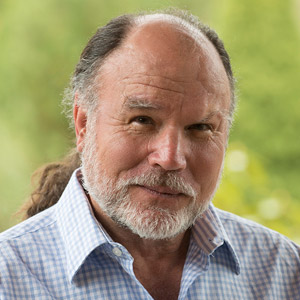It’s clear that a lot of us are feeling anxious these days. Between wars and political disputes and economic uncertainties — all of which seem to affect us daily, we’re all facing challenges. And to add to the discomfort, it seems like there’s very little we personally can do to resolve anything.
Yes, the world feels like it’s in turmoil. But let’s bring it closer to home. What is this anxiety that washes over us anytime we can’t get the people around us to stop doing things that annoy us? Or, for that matter, anytime we find ourselves unable to change the course of some event that runs counter to our expectation?

And even closer to home, what is this anxiety over our inability to get ourselves to do what we know we should, or to control our runaway reactions, or to stop being so concerned about what other people think about us?
About 75 years ago a poet dubbed this the “Age of Anxiety.” But it’s not just a problem for people today. Anxiety has been the dark companion of human beings since the beginning of time. The Greek philosopher Epictetus provided insight into what this anxiety is all about, and a clue to how to deal with it:
When I see an anxious man, I say, “What does this man want?” If he did not want something which is not in his power, how could he be anxious? For this reason, a lute player when he is singing by himself has no anxiety, but when he goes to the theatre, he is anxious, even if he has a good voice and plays well on the lute, for he not only wishes to sing well, but also to obtain applause, which is not in his power. — Epictetus (55 – 135 AD)
So, there’s a relationship between the anxiety we feel, and our desire — actually, our demand — that life go as we wish, even though what happens is not in our power.
I love the example Epictetus gives of the lute player. Almost 2000 years ago people felt exactly as we do now: nervous over performing in public — even though they may have great skill and they’ve been able to practice with no problem. They’re nervous because they are unable to control the way the audience will see them.
To put it as a general statement, we’re anxious because we can’t control what we think is necessary for our happiness and wellbeing. Which brings me to one of my favorite quotes from OneJourney founder Guy Finley:
Do what is in your power; refuse to do what is not. — Guy Finley (1949)
How much more pleasant our lives would be if we could remember this principle whenever we felt the need to control things that we did not have the power to control. But how do we make this elevated understanding central to how we meet life moment to moment? Maybe some examples of how to put this wisdom into practice would help. So here are several from Guy’s writings.
“Do What Is in Your Power; Refuse to Do What Is Not” — Applied!
Here’s an example of how to apply this principle in a work situation. It comes from a letter Guy wrote in reply to a student’s question:
Question from a student: What is a good approach with a supervisor who clocks one’s production and applies other pressures?
Guy’s answer: Do what is in your power to do, and refuse to do what is not. Neither ticking clock, nor dominating supervisor is in your power to change; they are what they are… (but not what you think). On the other hand, what is in your power is to KNOW the truth of the first statement and then watch how something in you wants to resist their actions “as if” there’s a way to make them different. You must learn what it means to meet them differently… beginning with separating yourself from the parts of yourself that love to fight with what your mind says is an overbearing situation. Try and see that what your mind is wrestling with is not them… but its own perception of them. So the real struggle is within you… it’s going on inside a mind divided into two parts: what it calls “them” and what it calls “you.” Neither of these offending parties are the real you. Only seeing this will allow you to use the unconscious pattern of stress and the suffering it engenders.
Here’s a brief quote from Guy concerning how to deal with memories of a difficult past:
Do what is in your power: refuse to do what is not. It is not in your power to change events gone by, but you can let go of the time-bound self that wants to chain you to pain that only exists in the past!
And finally, here is a great summary of this principle from one of Guy’s talks:
Since what others may do to us is not in our power to change, we need only concern ourselves with what we do to ourselves, for this is in our power.
It’s not in our power to change how people treat us. It’s not in our power to control the way people experience what we say. It’s not in our power to make our relatives into different kinds of human beings. It may be natural to wish that certain things didn’t take place, but it is not natural to give our life away for it — to hate or try to punish someone because they did something that contradicted our wishes. Demanding that others behave the way we want them to is investment in a false sense of power, one that pays itself off in pain.

Real power is, at any given moment, our ability to recognize that what we are going through cannot be resolved by the parts of us that don’t want it. Not wanting what is taking place may feel powerful, but it is powerless to change what is happening to us except that it will see to it that we remain the same person, punished by our own mind.
We have but one true power, and that is to decide what it is that we want to be in relationship with in every moment in which we can see the relationship we are in. That’s the power. In moments where there are problems, where there is anger, heartache, worry, fear, or shame — no matter what happens — we don’t have to feel powerless. We have the power to choose to give our power to what we want.
If you would like further help in understanding this great truth, Guy is providing an excerpt from the transcript of his classic audio album, 7 Powers, that offers more insight into how to do everything we can with a full heart, but then drop futile efforts and allow higher Intelligence to guide us when that is the better course. Click here to read the excerpt now >>
Life can be much less of a struggle than it is now. You’ve just learned about the golden rule that puts everything into proper perspective. Putting it to use is in your power.
Best wishes,
Dr. Ellen Dickstein
The OneJourney Project
PS: You are invited to attend Guy Finley’s FREE online talks on these powerful and life-changing ideas. He speaks every Wednesday evening and Sunday morning, and all his talks are livestreamed and archived! For details visit guyfinley.org/freeclass
PPS: As a thank you for visiting our website, enjoy special savings on this inspiring book. Use the coupon code SEEKER when checking out HERE, and each book is just $6.50. That’s over 60% off the retail price. Plus: Buy 3 & Get 1 Free! Add 3 books to your cart and we’ll add a 4th one for free. That’s just $5 each. PLUS: Each book comes with a free 60-minute MP3 program! LEARN MORE…







